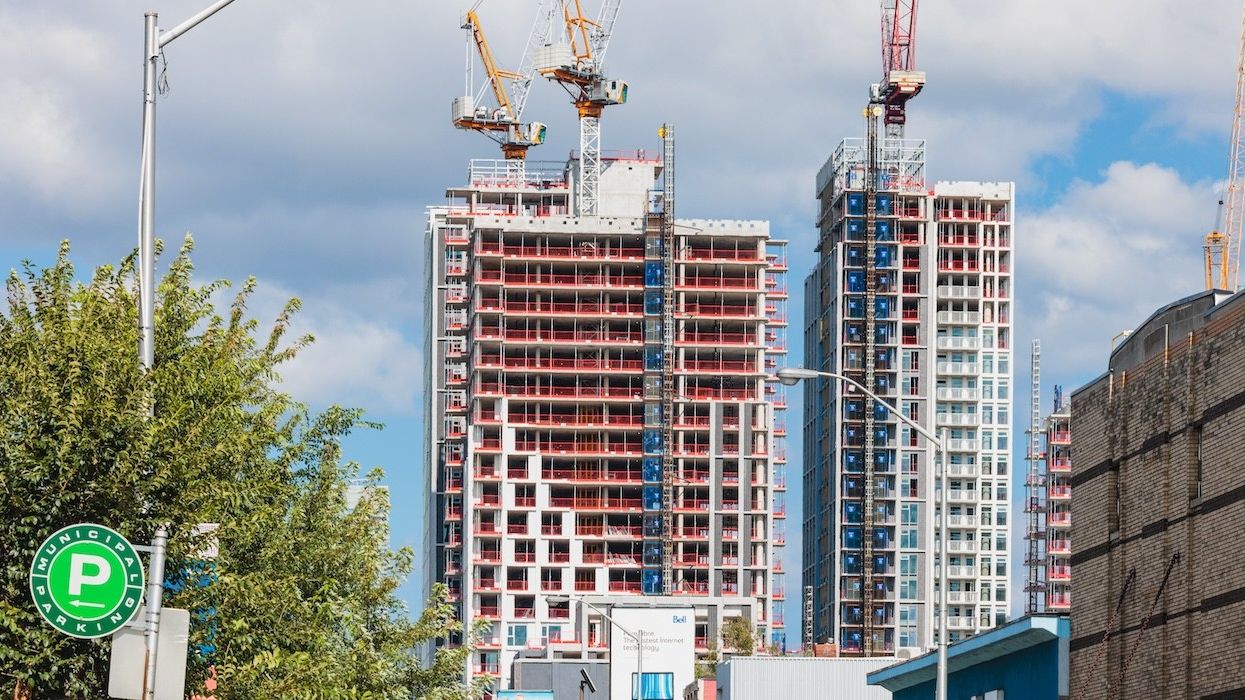The residential construction industry has plenty on its plate these days. High interest rates have brought the new home market to a virtual standstill. Sales and starts have just about dropped off a cliff.
Last year was a tumultuous time for the industry. The annual pace of housing starts in Canada fell significantly. Going forward, much will depend on the interest rates. But there are other factors at play.
Systemic issues, red tape and a slow approvals process continue to plague our developments, particularly at the municipal level. Lengthy wait times for residential development and permitting applications make it difficult for builders to put shovels in the ground quickly on new homes and condos.
The system in many municipalities is antiquated, cumbersome and fraught with pinch points. We need a streamlined, digitized system across Ontario that allows applications to be moved along quickly.
RESCON is encouraging the province to adopt the One Ontario research project by AECO Innovation Lab that can connect information and processes across the many authorities involved in approvals.
Exorbitant taxes, fees, levies and development charges on new residential development are also contributing to the problem and making new homes and condos unaffordable to the average worker.
Presently, such add-ons account for 31% of the cost of a new home, making it difficult for first-time homebuyers to get a foothold in the market.
This is causing young people to leave our cities for greener pastures elsewhere. For example, 40% of post-secondary graduates are thinking of leaving Ontario because of housing affordability, according to a recent survey. Although 75% want to own a home, only three in 10 are optimistic.
We are in dire need of housing. To restore affordability to the market, we need 5.8 million housing units to be built in the next six years, but only 2.3 million are anticipated. In other words, we aren’t building fast enough. We need to find ways to make it less cumbersome for builders to build – not make it more difficult.
Latest reports indicate the housing starts are slowing at exactly the time we need them to ramp up. Ontario saw 85,800 housing starts in 2023, down from 91,900 the year before. We are like a deer in the headlights, with too many experts weighing in who aren’t builders.
Yet we continue to throw up obstacles. Toronto’s noise bylaw is an example. Construction noise is not permitted between 7 p.m. and 7 a.m. on weekdays. On Saturdays, it’s not permitted until 9 a.m. Noise isn’t permitted on Sunday and statutory holidays. Such limits lengthen the time to build a project.
The City’s economic and community development committee recently reviewed a staff report on the regulations. The report largely codified the status quo. At RESCON, though, we have some concerns we’d like to see addressed before the February 6 Council meeting where the matter will be discussed. We outlined our concerns in a letter sent to Alejandra Bravo, who is chair of the committee.
It's a tricky balancing act, but in light of the housing crisis and as representatives of residential builders who construct 80% of homes built across Ontario, we felt it necessary to recommend to Council how it can accelerate the process of building homes and make it less cumbersome.
For starters, we recommended that the permitted time for residential construction work be amended to have a start time of 6 a.m. rather than 7 a.m. We do not object to a concluding time of 7 p.m. On Saturday, we’ve requested the time be bumped up an hour to allow construction to begin at 8 a.m.
In addition, where provincially mandated or exempted projects are operating, we’ve requested that residential construction projects adjacent to those sites be permitted the same exemption automatically.
In our letter, we noted that we also support giving the executive director of municipal licensing and standards increased delegated authority but would like to see wording of the bylaw allow the executive director more flexibility to reduce or amend requirements where practicable in either direction.
We are in unprecedented times for home building. The residential construction sector is contending with the most challenging economic environment experienced in generations. Canadian owners and renters, meanwhile, are facing the most significant and enduring housing crisis ever.
Our hope is that efforts will be made to ease – rather than increase – the regulatory situation so that the residential construction sector can build the homes that new homeowners and renters need.
Recently, a report by RBC indicated that only 26% of Canadians can afford a single-family home right now – down from 40% a year ago. About 45% of households can afford to own a condo apartment based on their income, compared to close to 60% four years ago.
However, impediments to new home building still exist – such as bureaucracy, red tape and a slow approvals process, as well as high taxes, fees and levies – and a restrictive noise bylaw. So, we still have work to do.





















